Turning Point USA, a nationwide right-wing organization that brings in $80 million in revenue annually from billionaire-backed foundations, brought its first on-campus event to CSU Stanislaus as part of their efforts to establish a lasting presence at the university. The event featured Chloe Cole, a detransitioner and advocate for increased scrutiny of gender-affirming care. The event drew both support and protest, prompting a broader conversation among students, faculty, and staff around freedom of speech, identity, and institutional responsibility.
Cole, who began her gender transition as a minor and later detransitioned, shared her personal story to raise concerns about what she called a widespread “trans agenda” in education and healthcare systems. Promotional materials for the event used phrases such as “Exposing the Trans Agenda,” which some attendees both progressive and conservative described as inflammatory.
Shortly before the event, University administration sent out communications stating their position that the Quad is a public space at a public institution, and acknowledged their right to exercise free speech in this space so long as they abide by the campus Time, Place and Manner Policy.
“We are committed to upholding the fundamental value of free expression for all,” the email read. “This means that, at times, individuals or groups not affiliated with the University may share messages that some members of our community find upsetting, offensive or hurtful.”
To provide counter-resources and balanced viewpoints to the public forum, the Student Leadership, Engagement and Belonging office set up a booth offering information on both LGBTQ+ support and Turning Point USA.
Meanwhile, Robin Baldridge, a faculty member in the gender studies and English departments and a supporter of the LGBTQ+ community, helped organize a nearby protest and distributed flyers reading, “There is no ‘trans agenda’ — just people trying to live in peace.”
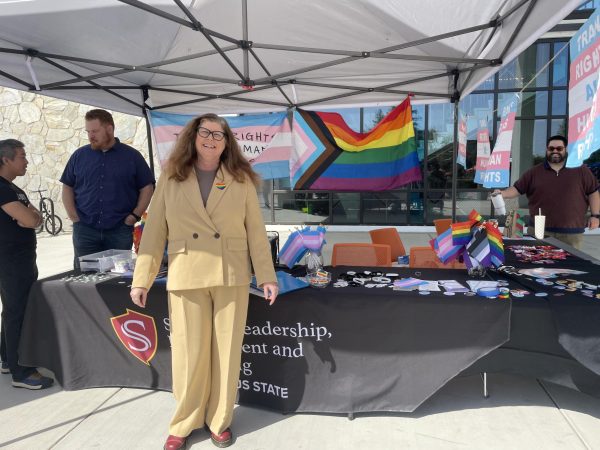
“We want to make sure our students feel supported and included and not confronted or demeaned,” Baldridge said.
Several protestors expressed concerns about the event and its anti-trans rhetoric, including Julian Moonlight, who identified themselves as a drag performer and LGBTQ+ advocate.
“I’m going to do whatever I can to help others who don’t have the voice,” they said.
Others like King Cain, a prospective psychology student, noted they came not knowing much about Cole but opposed Turning Point USA’s broader message, calling it “disingenuous.”
Some students sought to listen with an open mind. Michael Macias (Junior, History) said, “All I’ve really heard is just noise from both sides, so it’s nice to hear from someone who’s directly been through it.” Still, he found the event’s messaging “kind of antagonistic.”
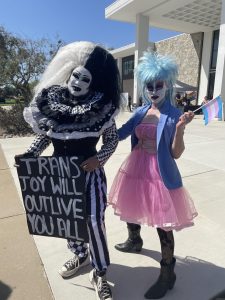
In a separate conversation, Issac Barnes (Sophomore, Political Science) questioned the broader implications of Cole’s advocacy.
“I think it’s worth listening to anyone’s personal experience,” he said, “But I have an issue when that experience is used by corporate-funded groups to push narratives that endanger already marginalized communities.”
Cole responded to criticism during the event, clarifying that her intent was not anti-trans but to raise awareness about medical practices she considers rushed or harmful.
“I’m in favor of these people being given the compassion they need,” she said. “But doctors mindlessly putting them through the system—that’s abusive.”
She argued that mental health support should be prioritized over immediate medical intervention and linked emotional distress in the transgender community to larger issues of psychological suffering, social exclusion, and substance abuse.
Dialogue was had, but was often unable to be heard by bystanders and passerbys over the noise of the crowd and the busyness of the Quad. At one point, Dr. Emma Joy Jampole, a transgender faculty member, attempted to engage Cole in conversation but was drowned out by rising chants.
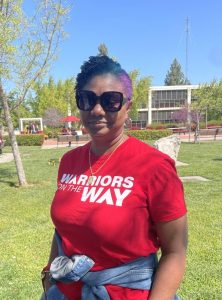
“It’s really unfortunate how the noise disrupts their conversation,” said one bystander. “I wish they had microphones.”
Vice President and Chief Diversity, Equity & Inclusion Officer Sacha Joseph-Mathews noted the lack of audio equipment and emphasized the importance of distinguishing between awareness and imposition.
“Everyone has their own valid experiences,” she said, “but for that voice to be amplified, others must want to join the discourse.”
The event highlighted the challenges of hosting polarizing speakers while fostering an inclusive campus climate. The conversations it generated—some contentious, others deeply personal—signaled a continuing engagement with how the university navigates free speech, protest, and support for marginalized communities.







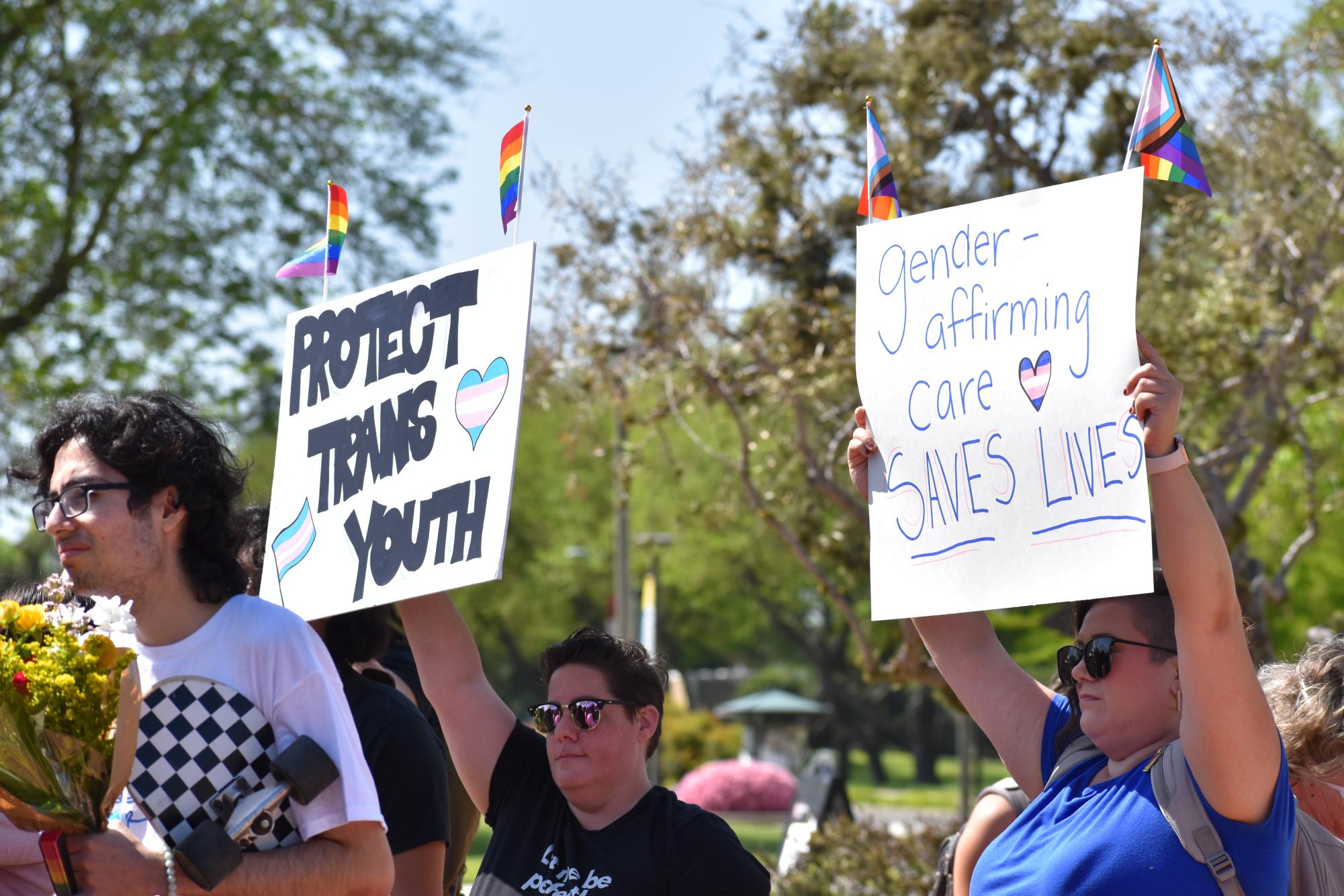
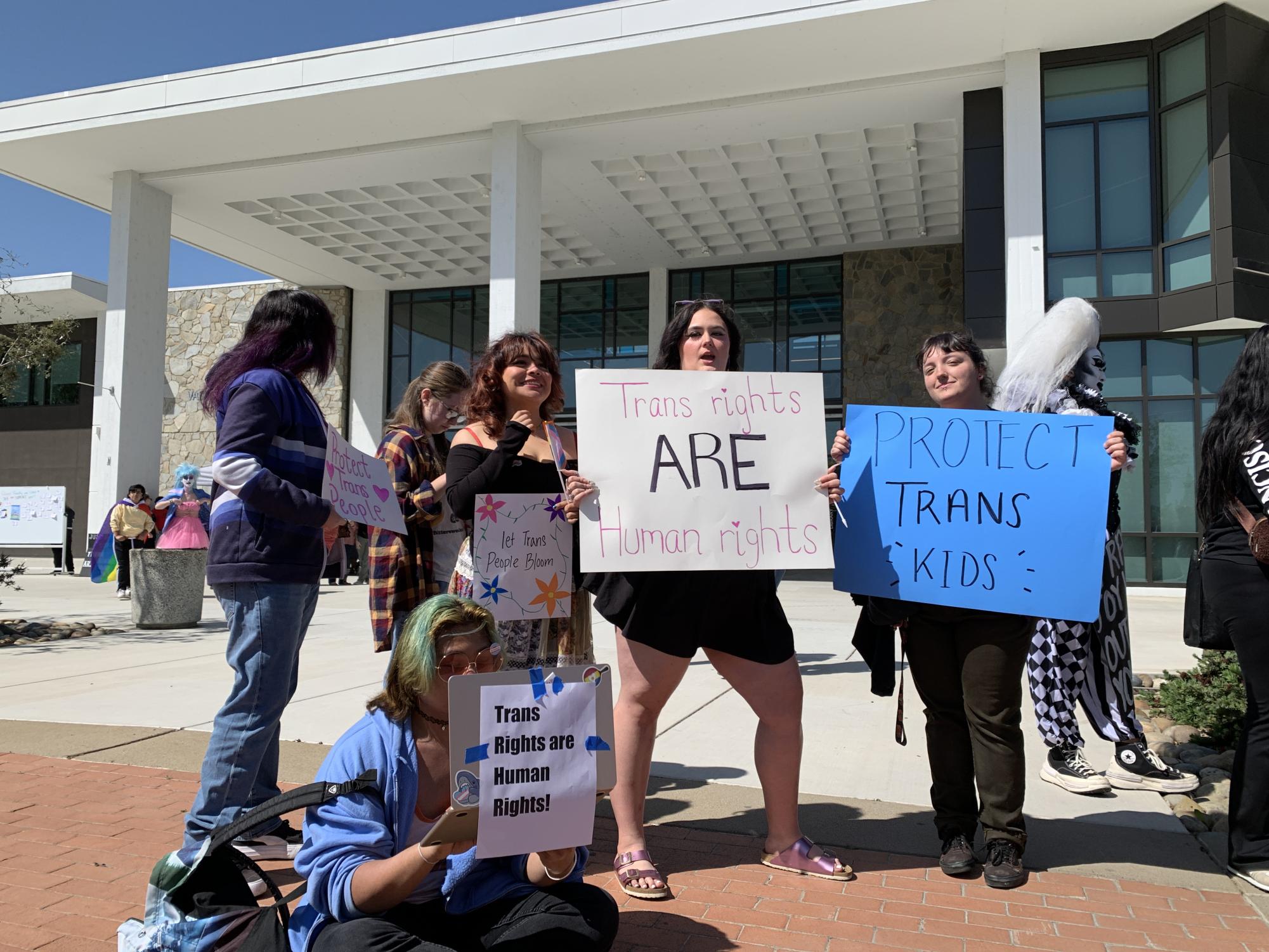
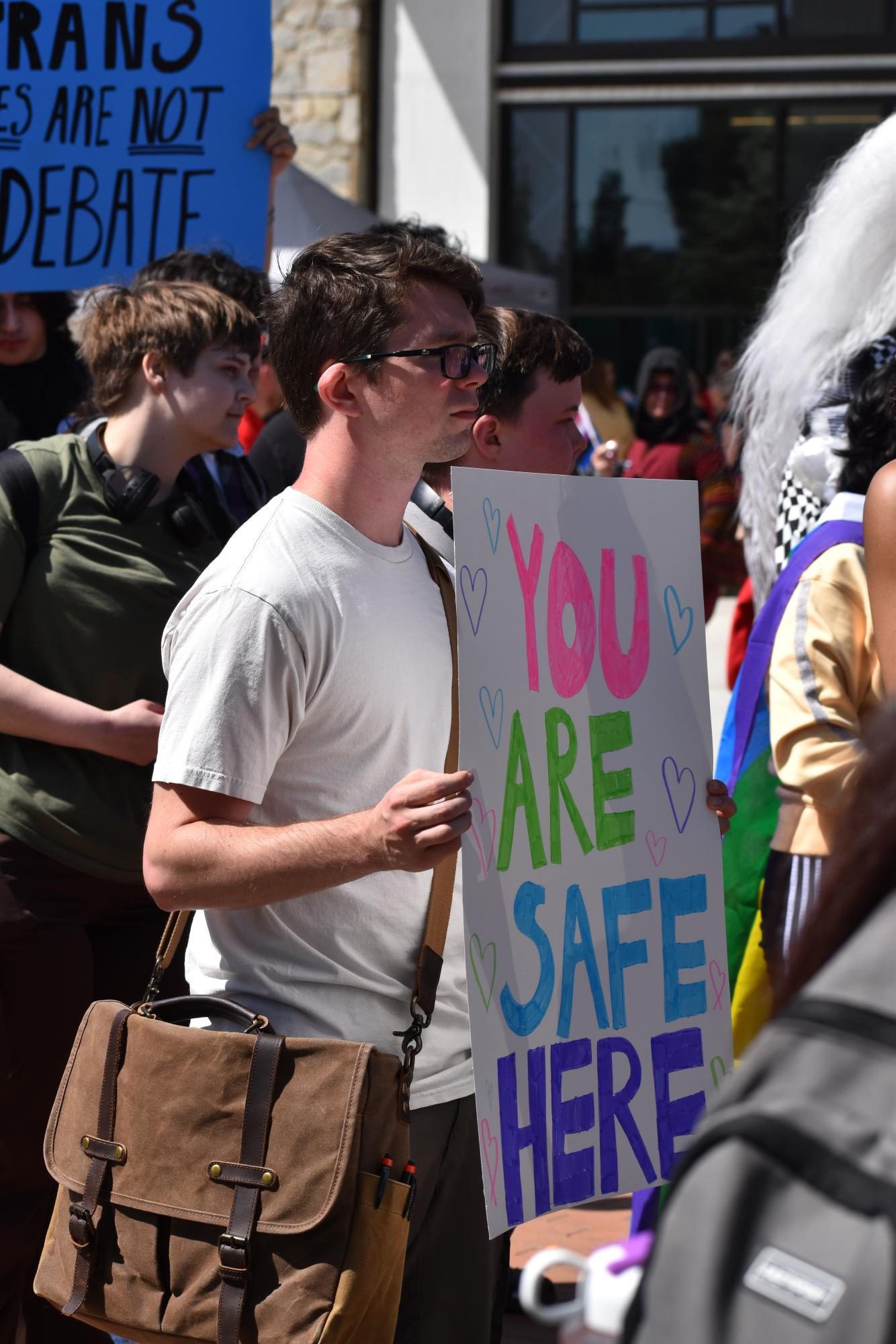
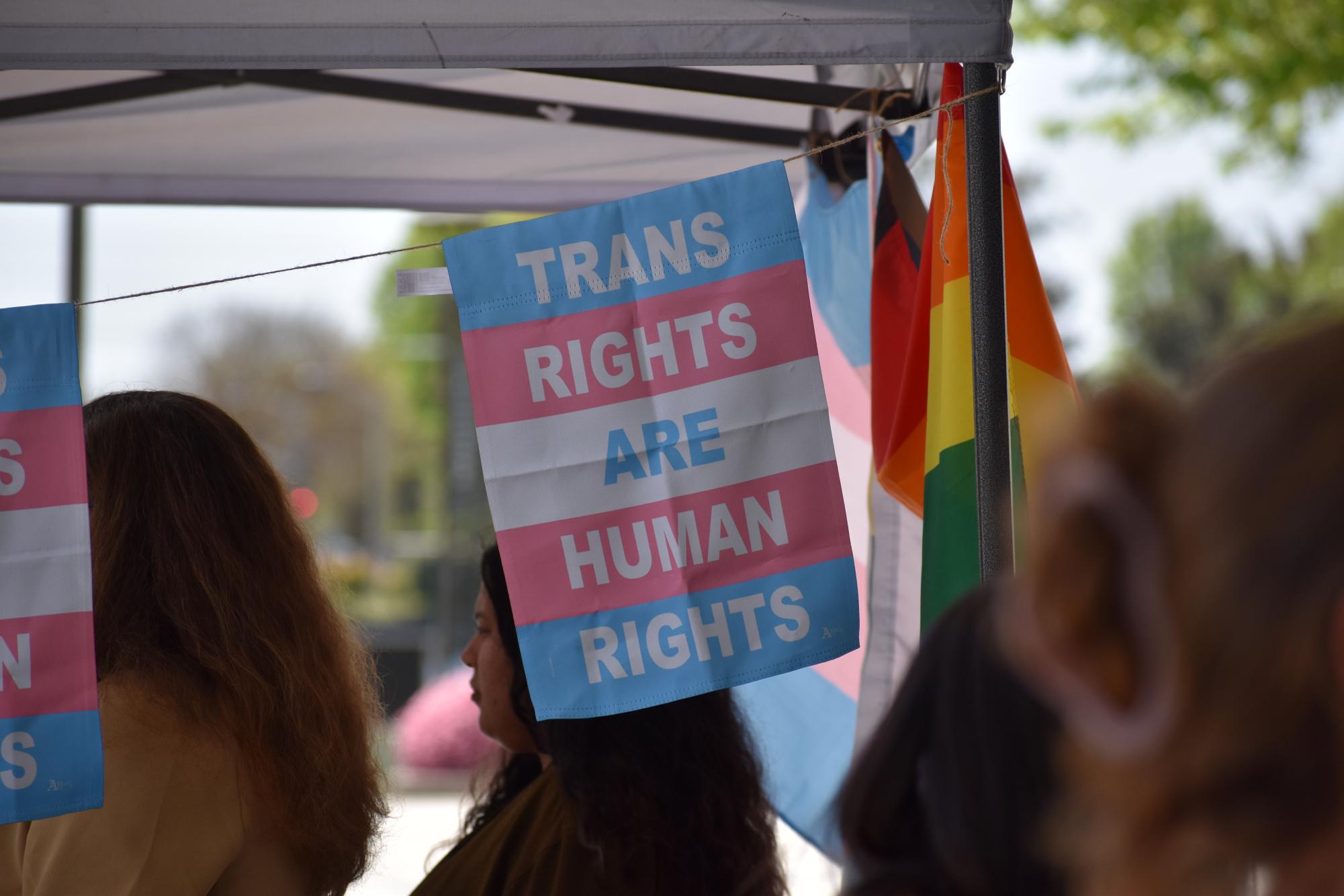
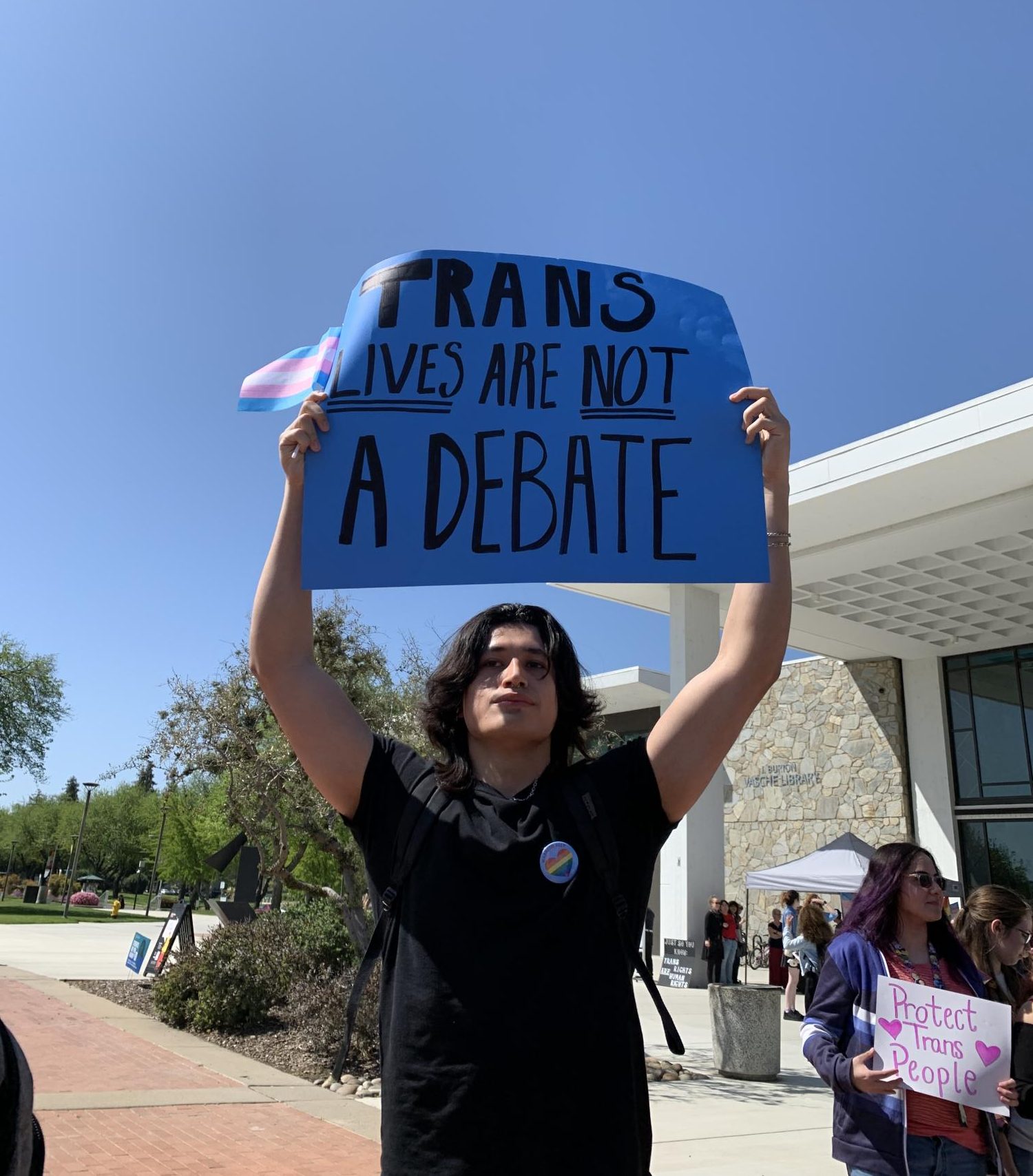
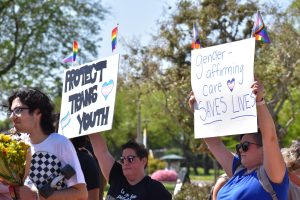
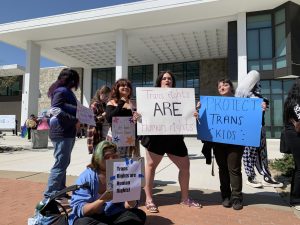
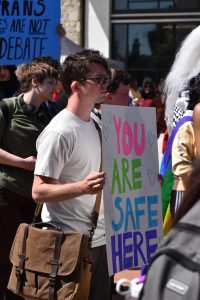
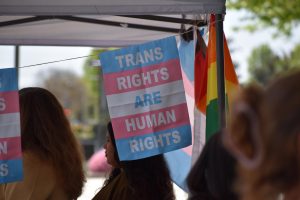
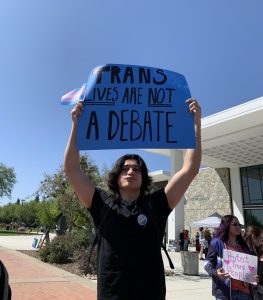
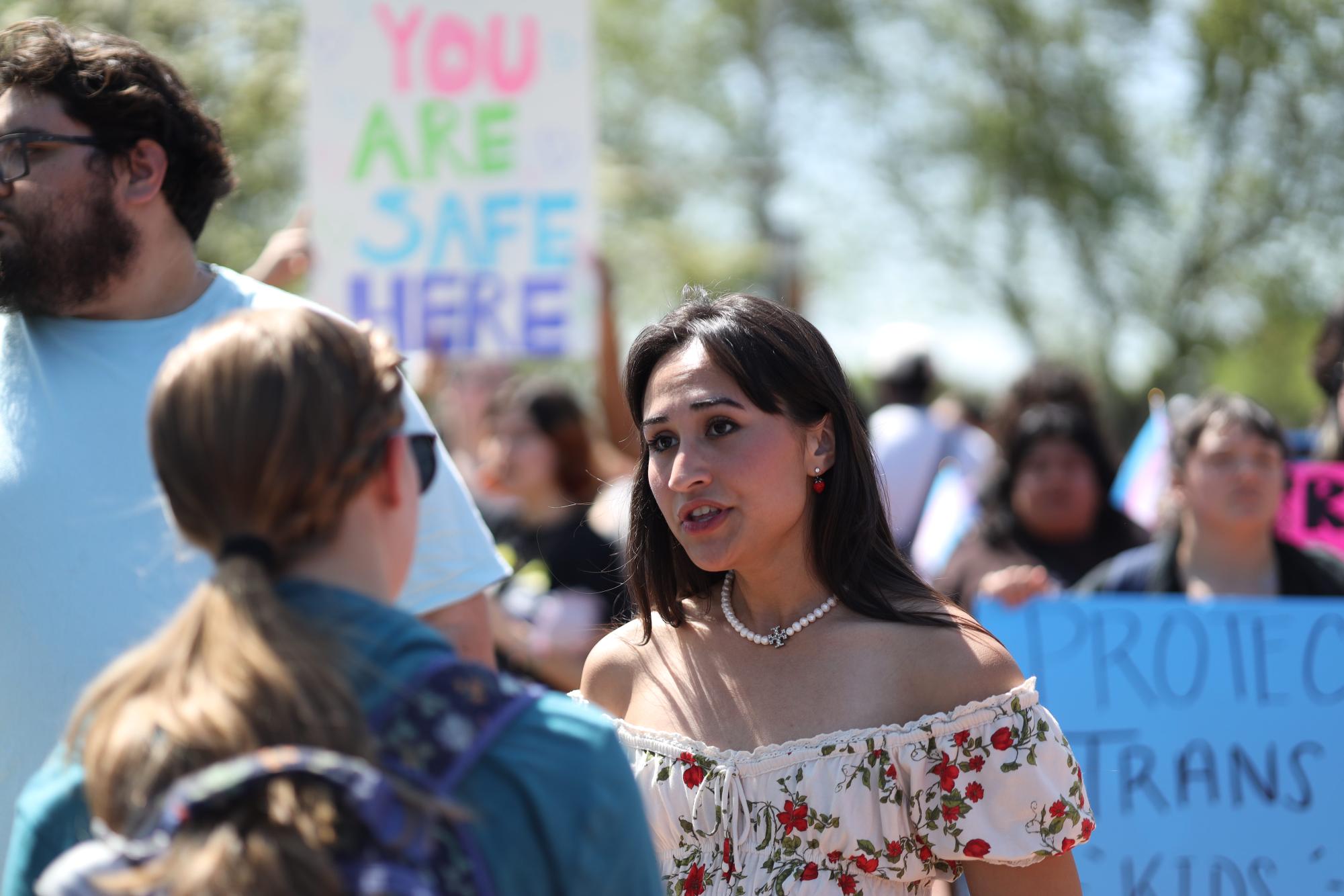
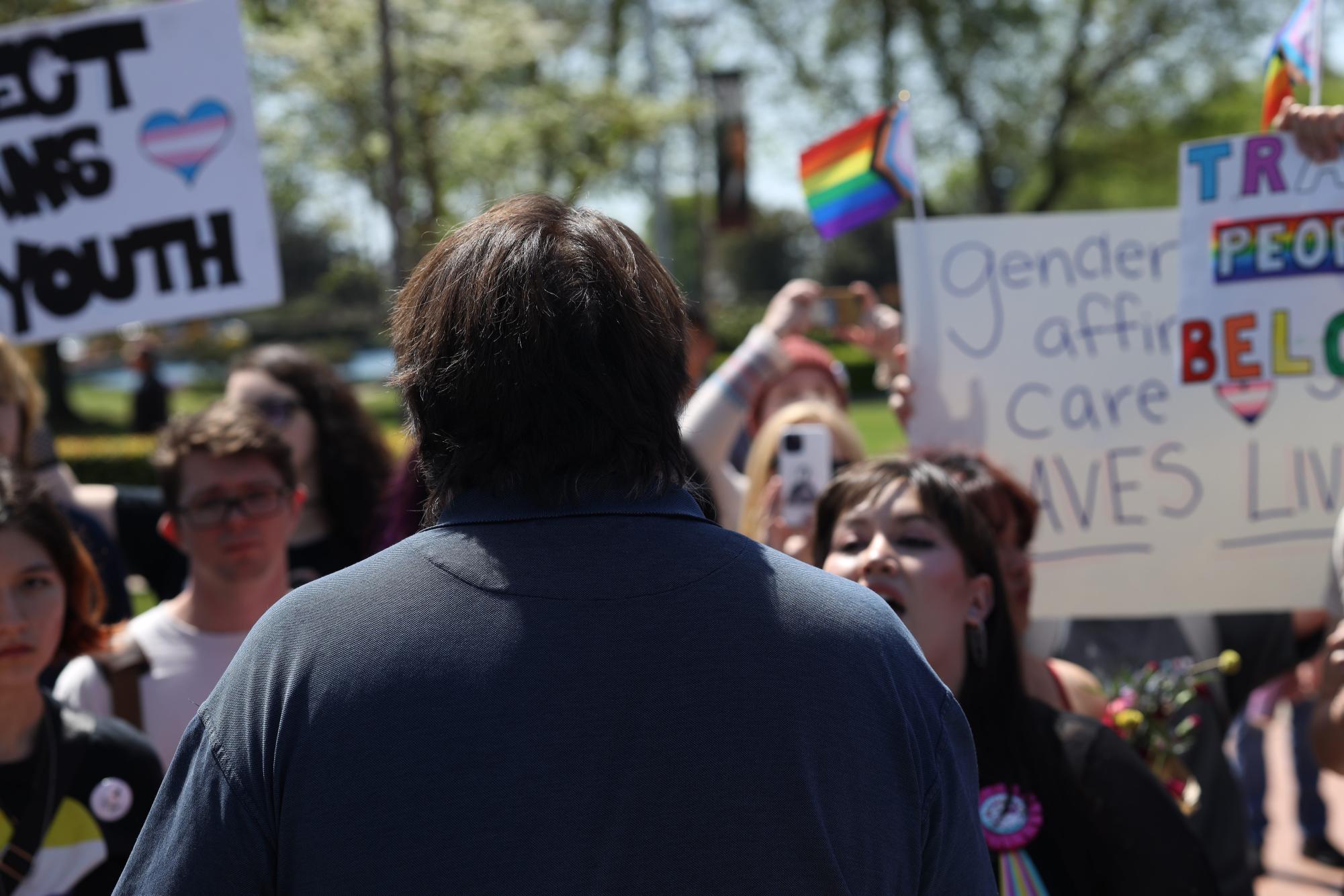
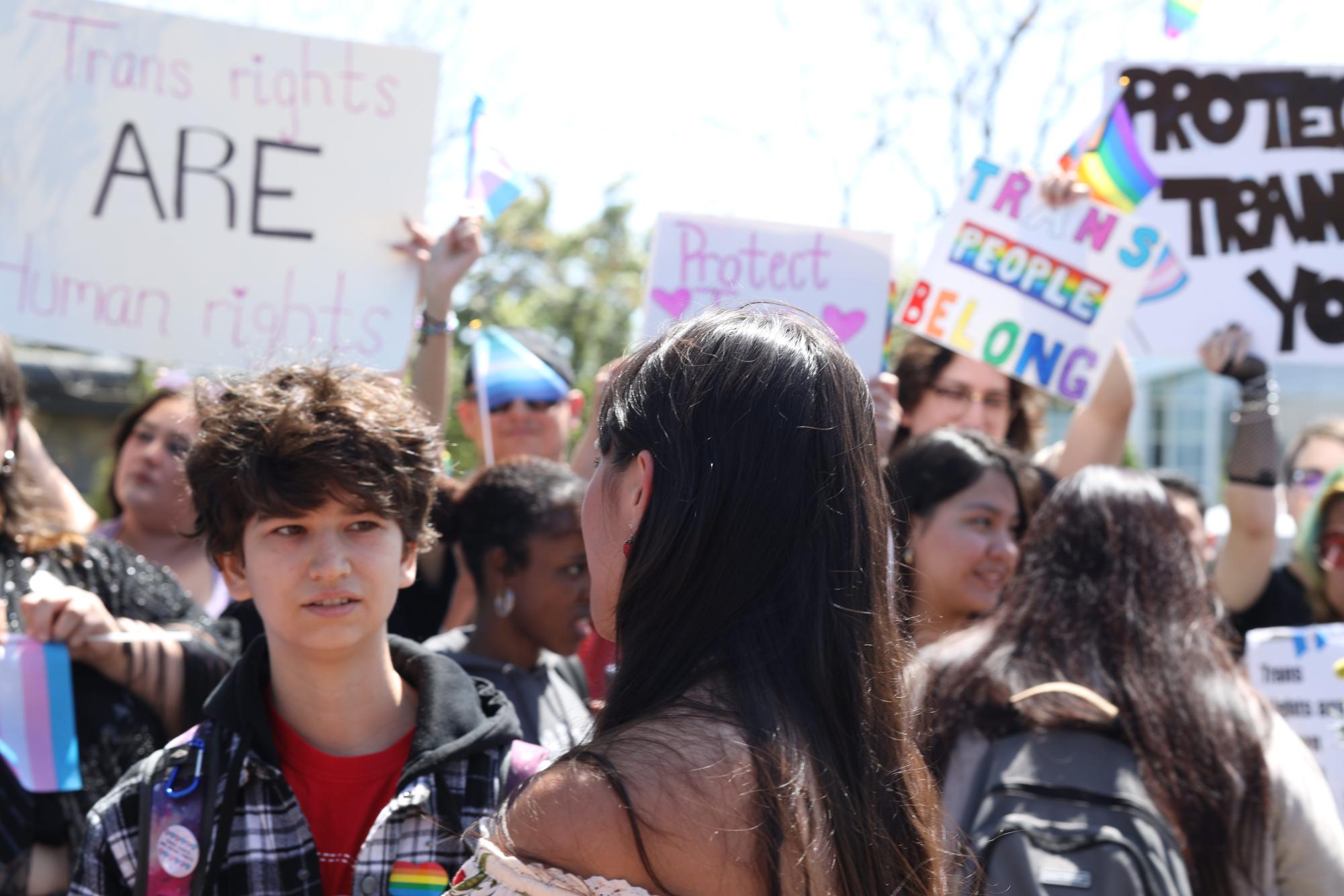
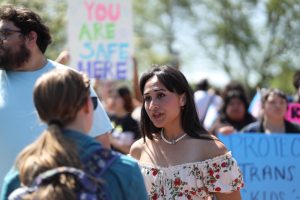
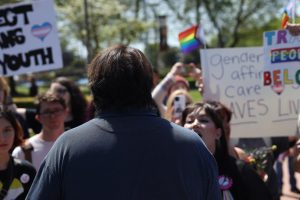
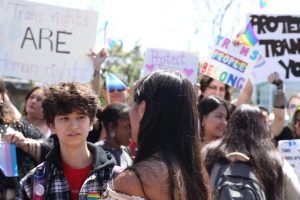

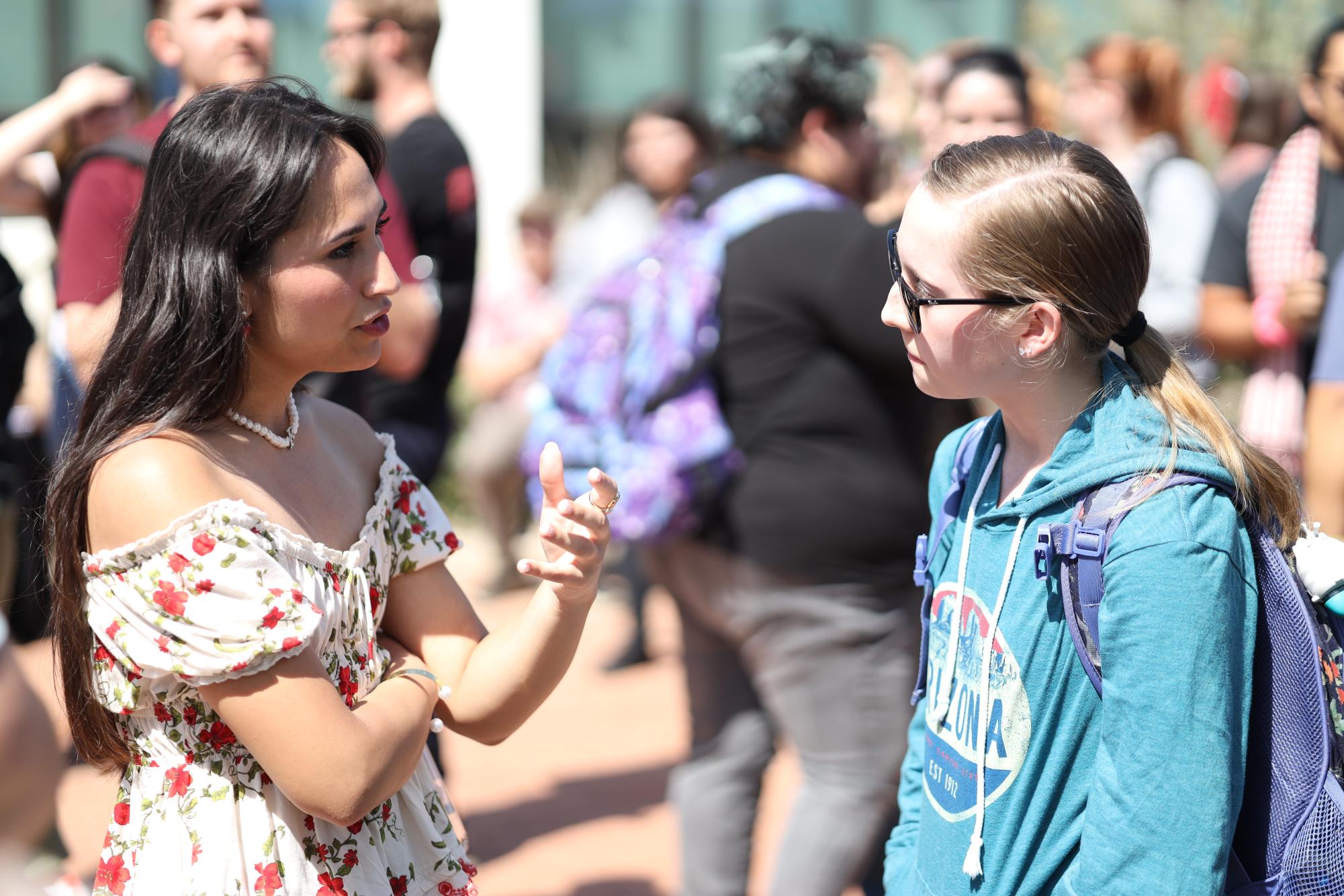

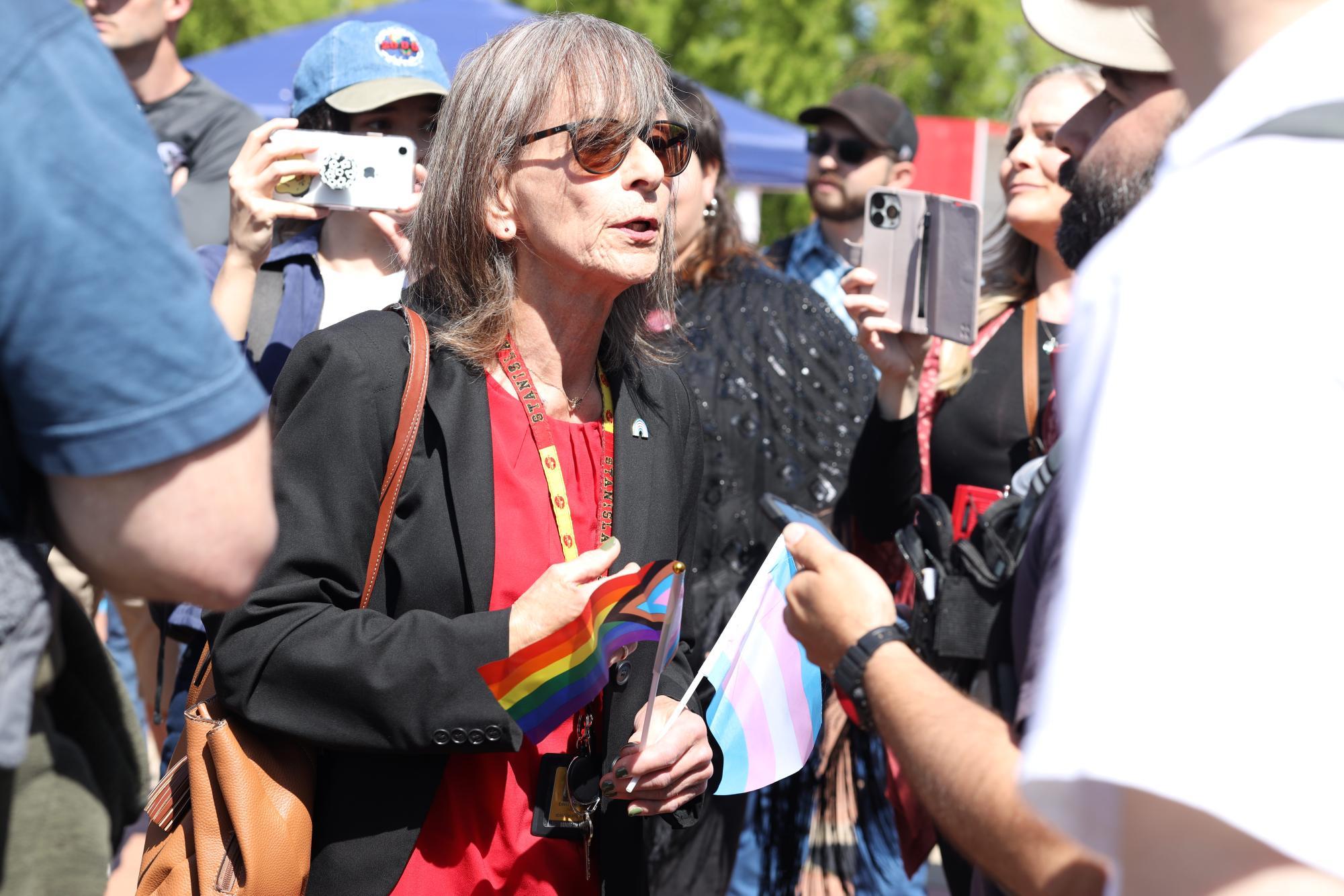
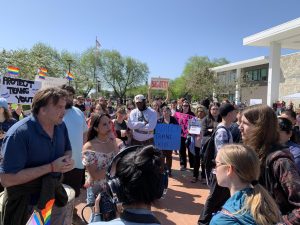
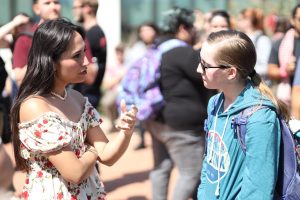
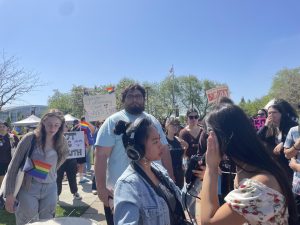
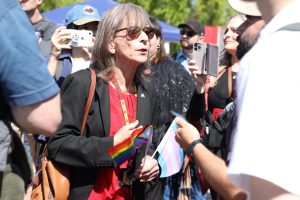
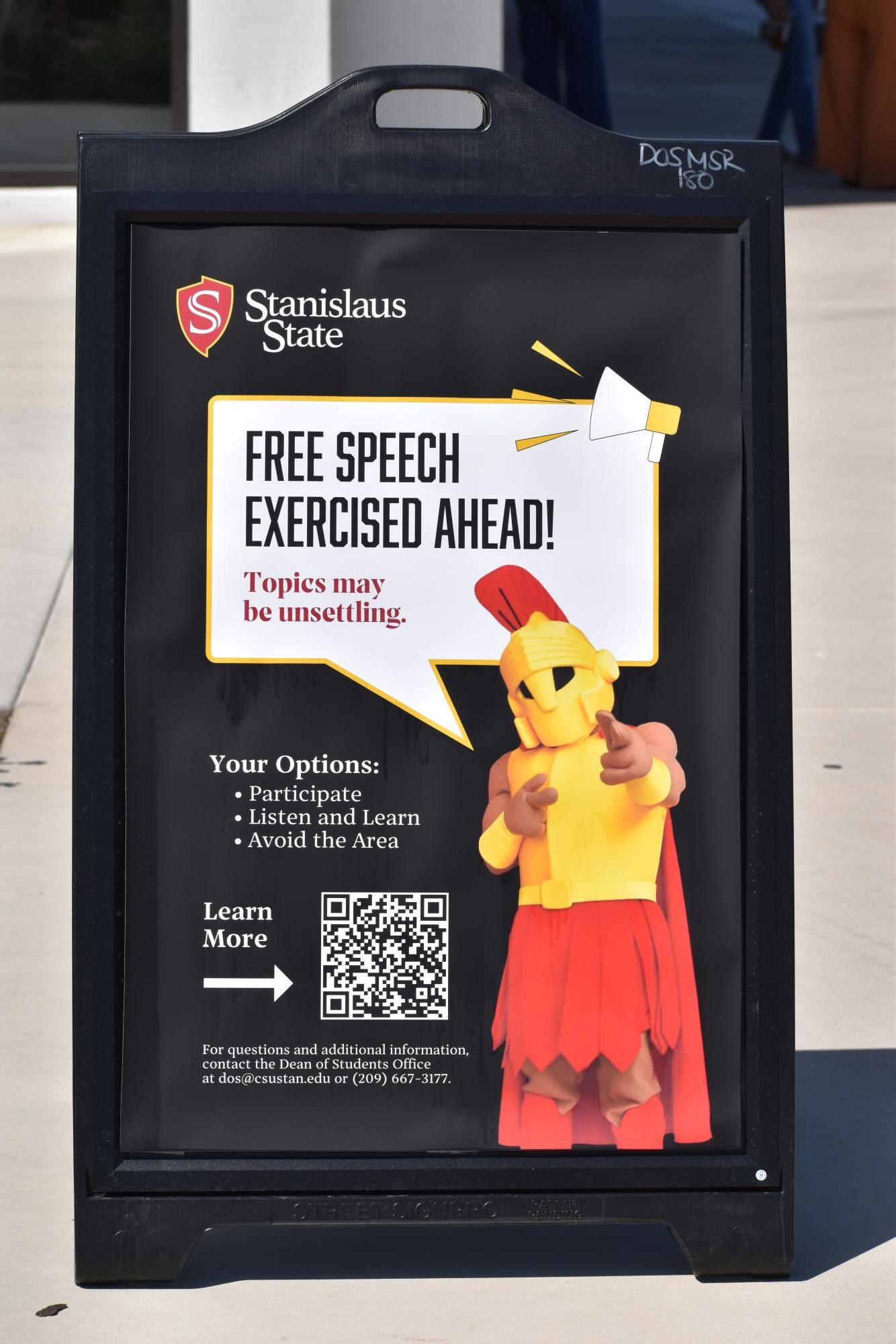
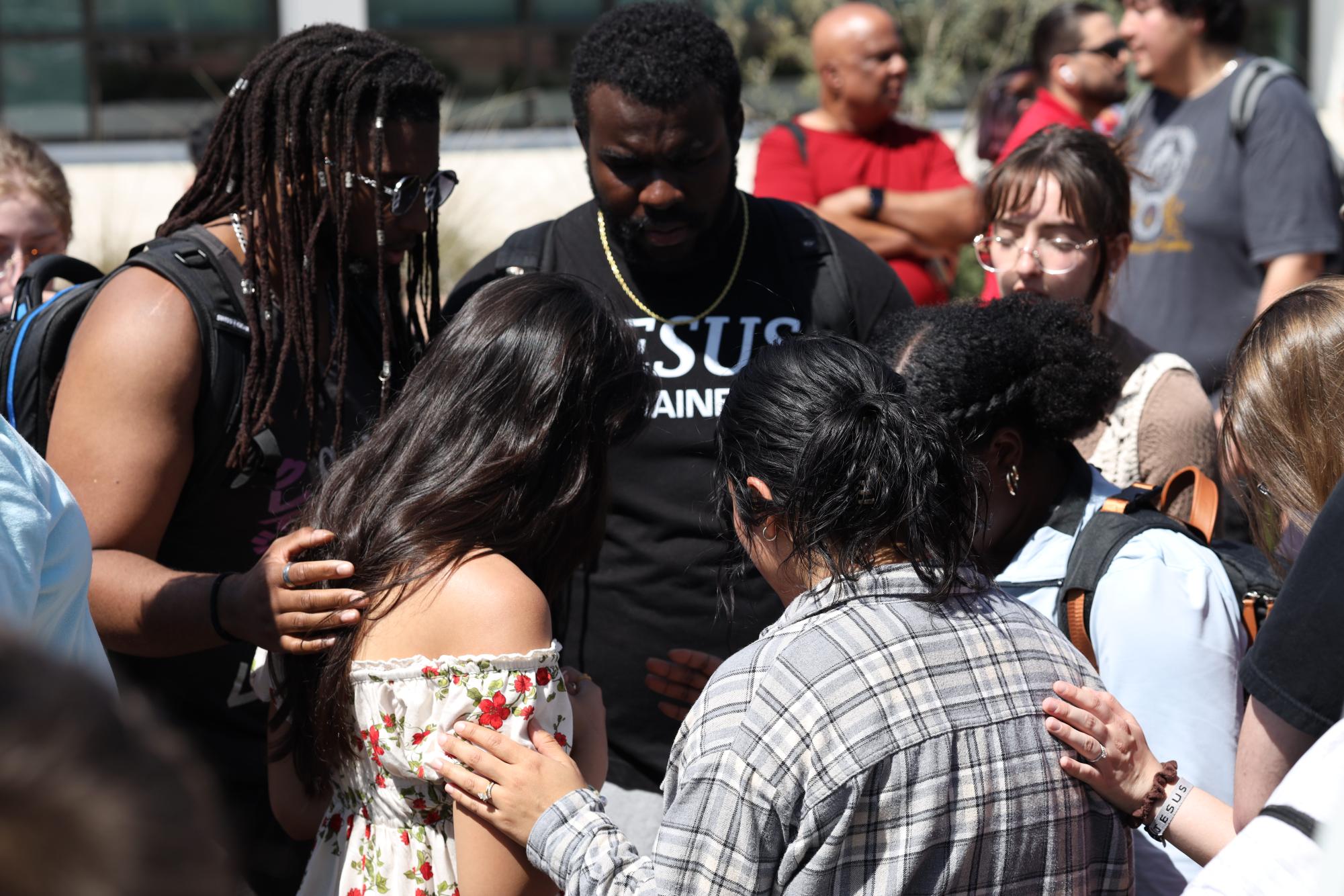
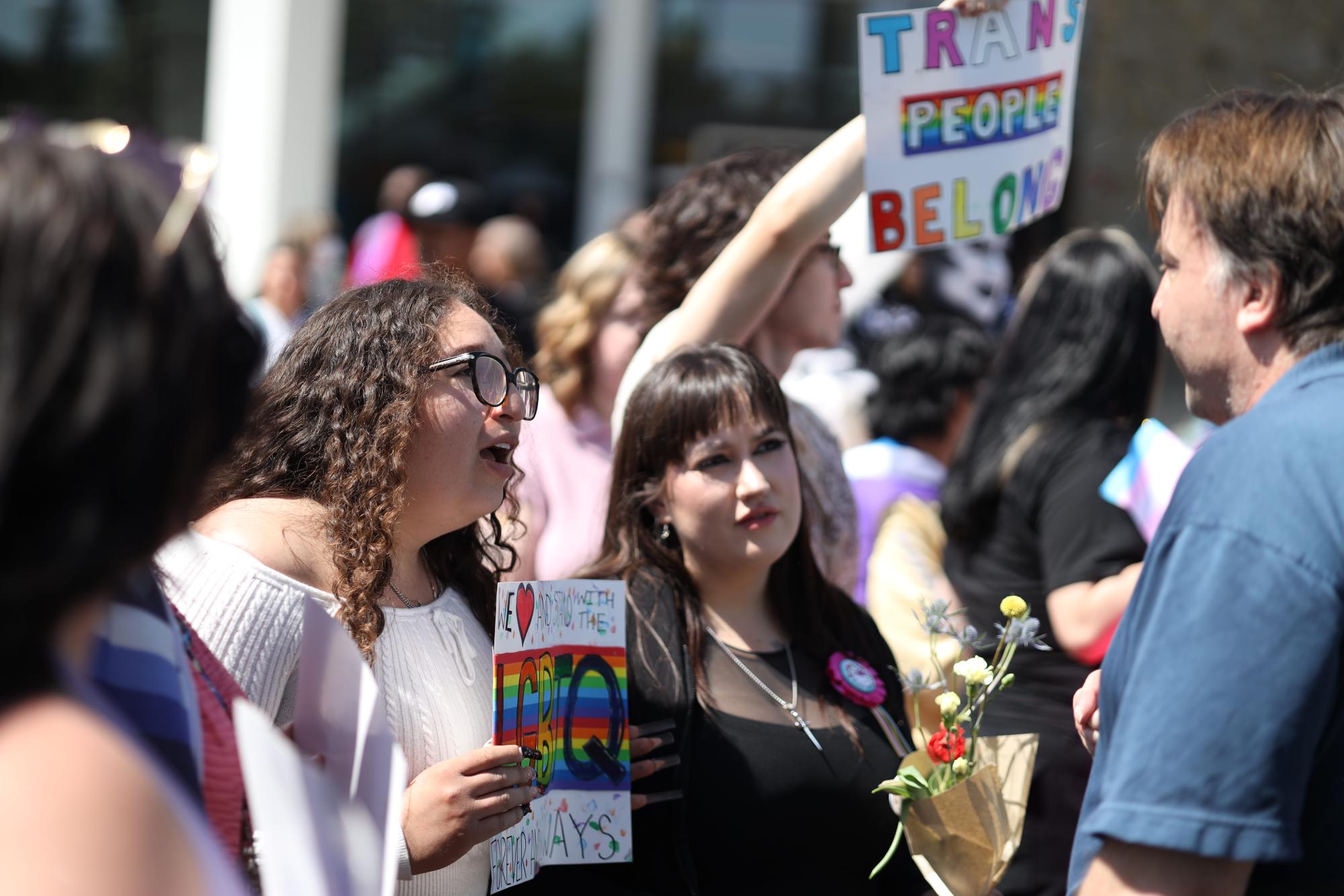
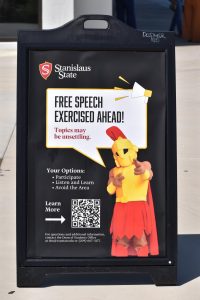
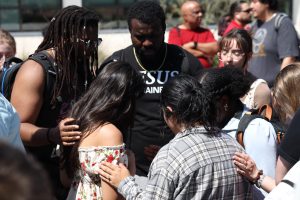
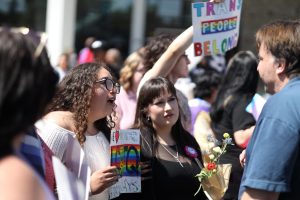
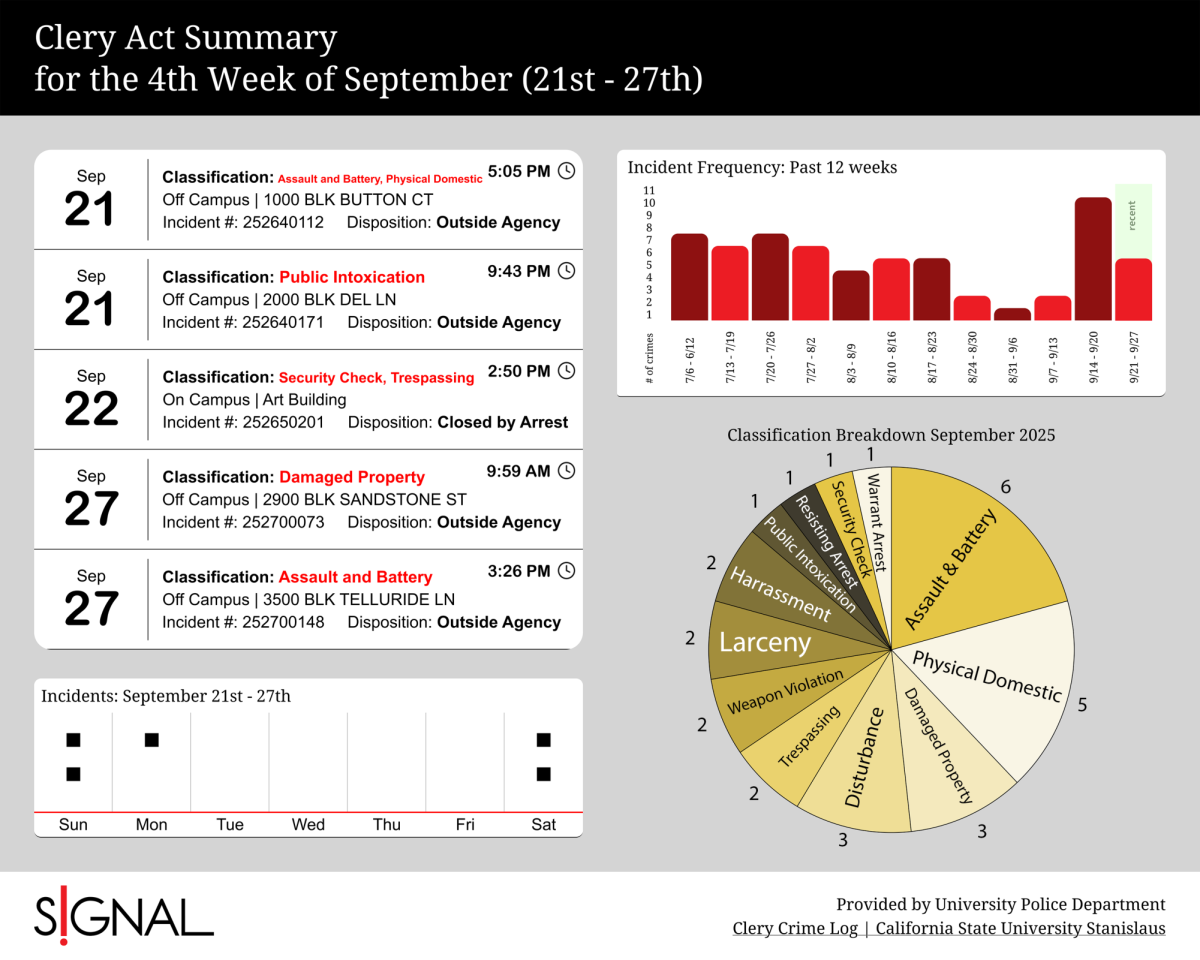
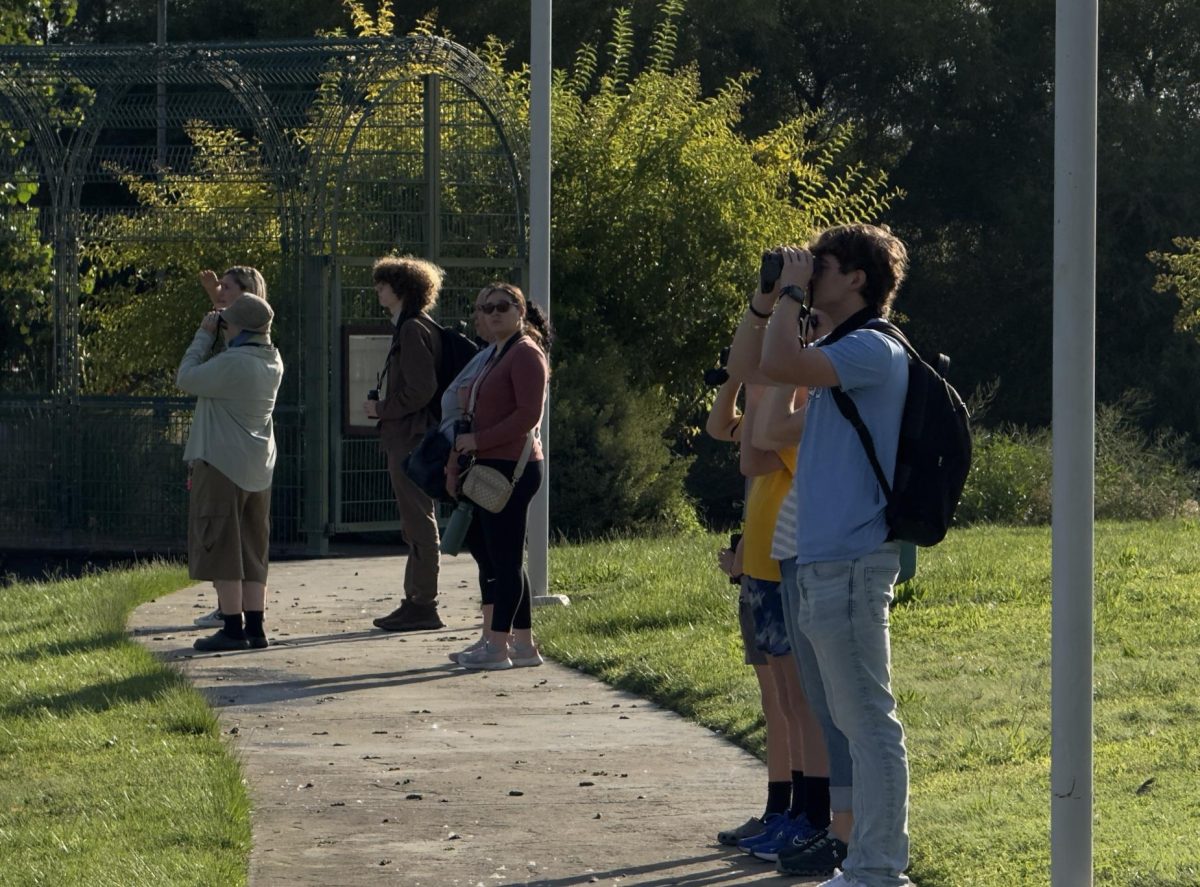
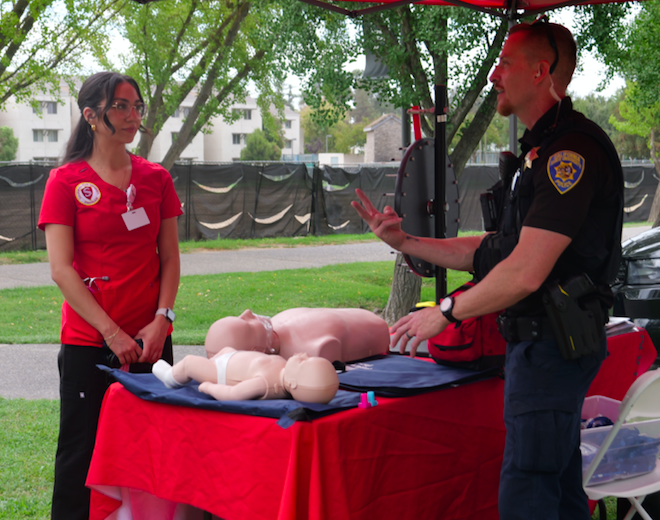
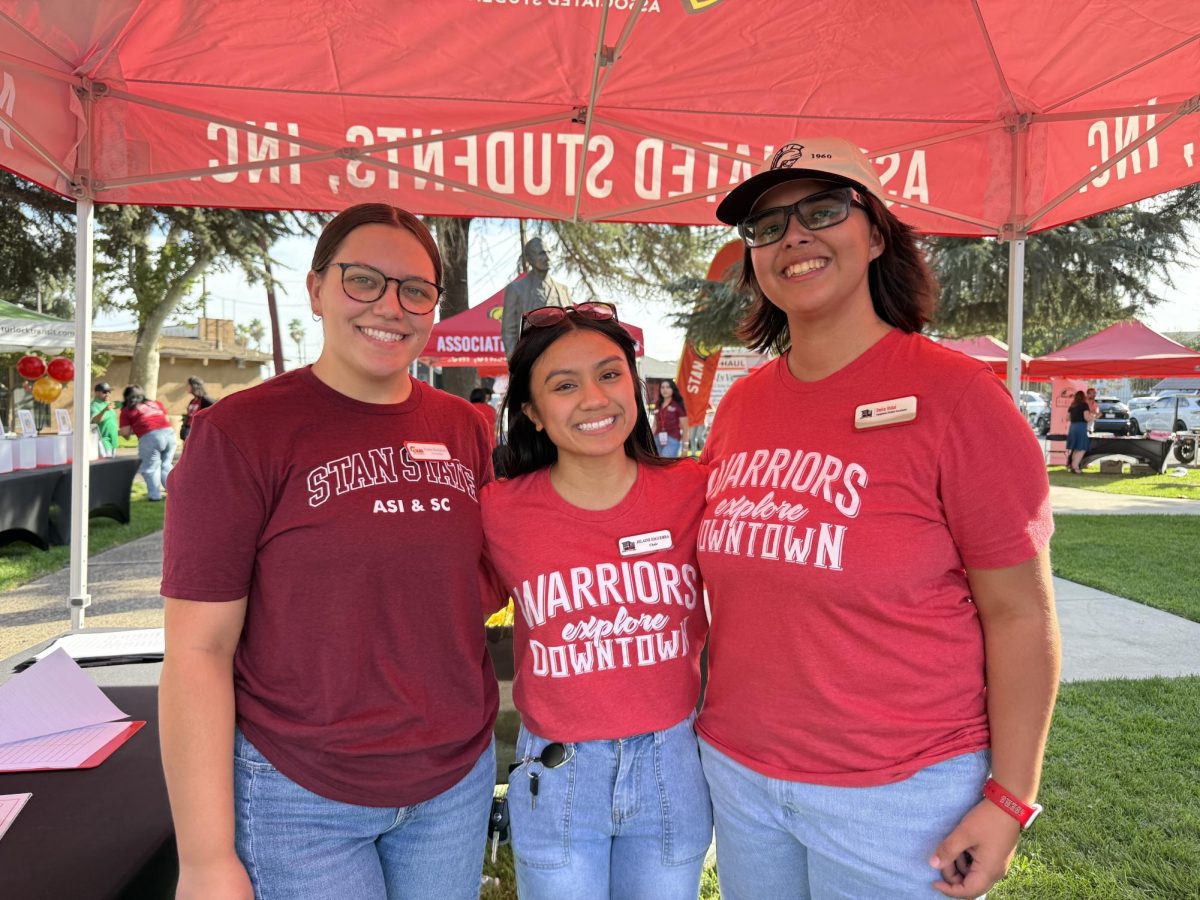
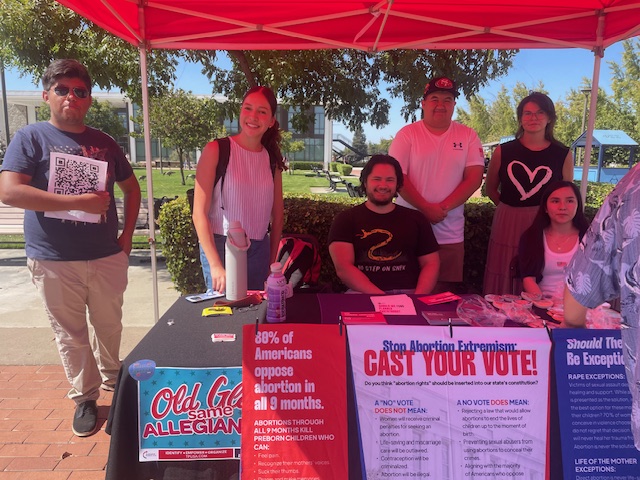
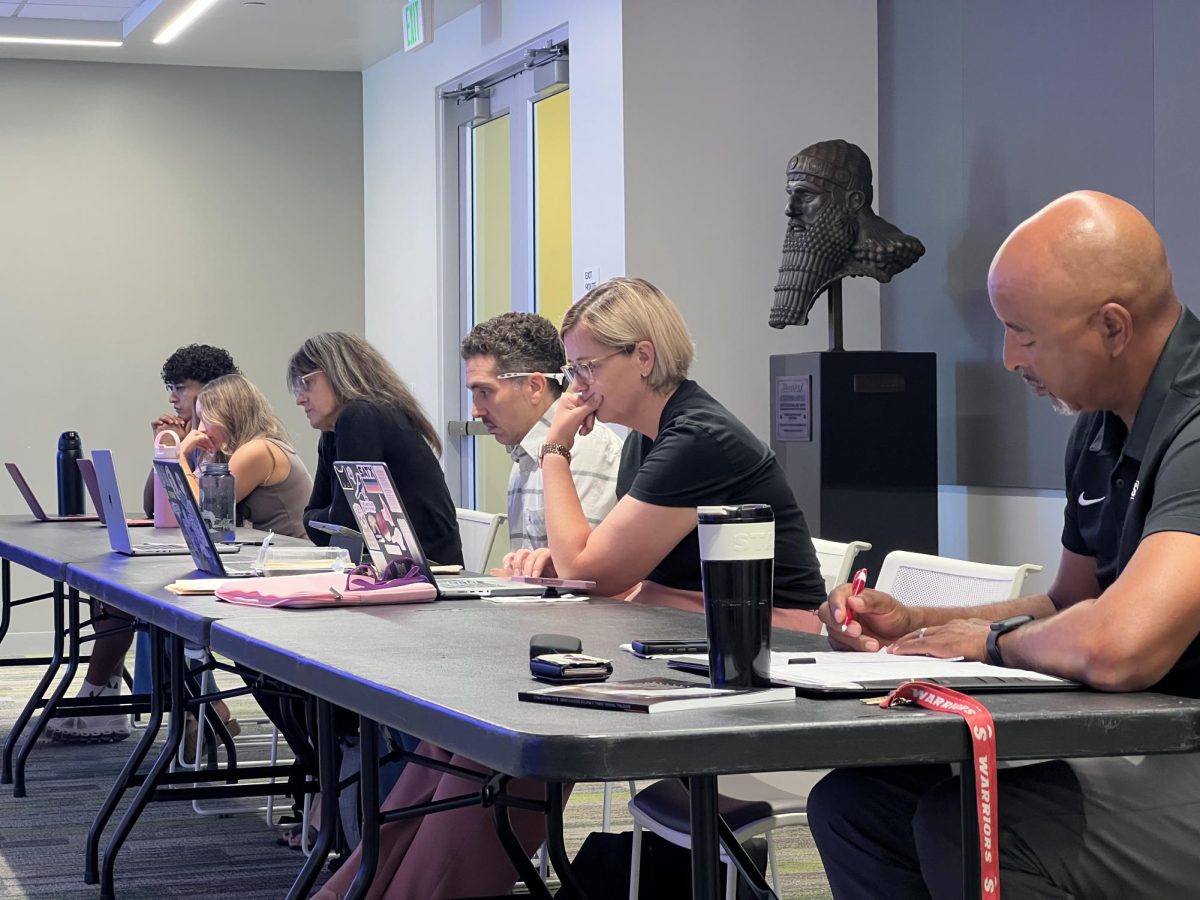
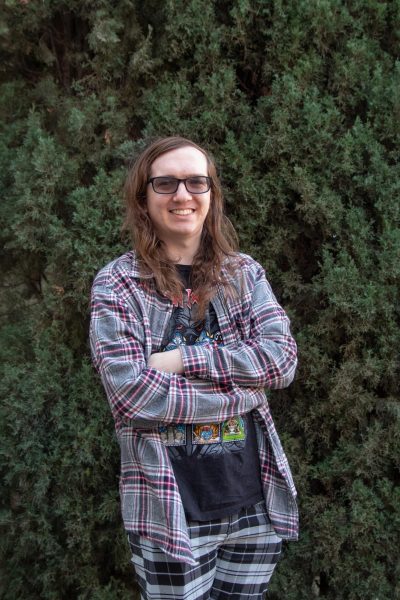

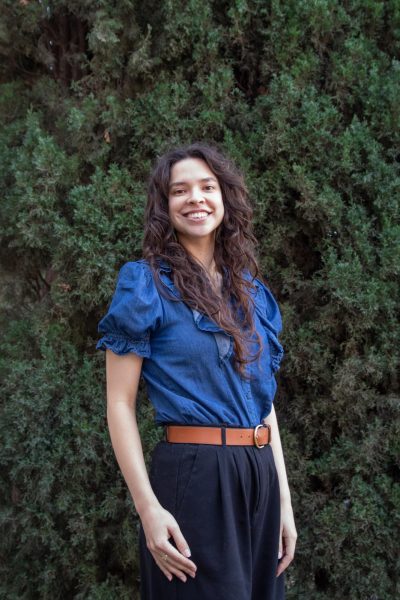

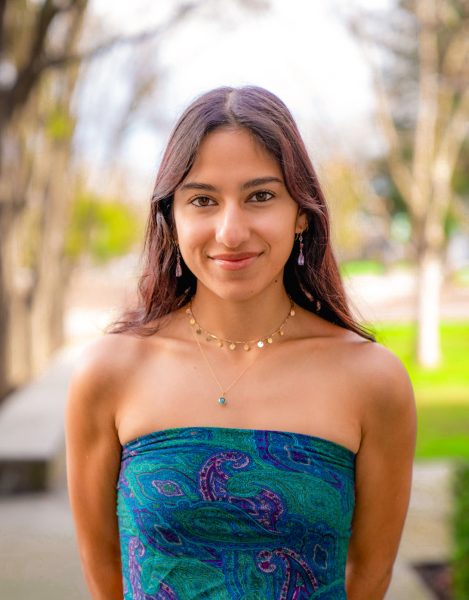

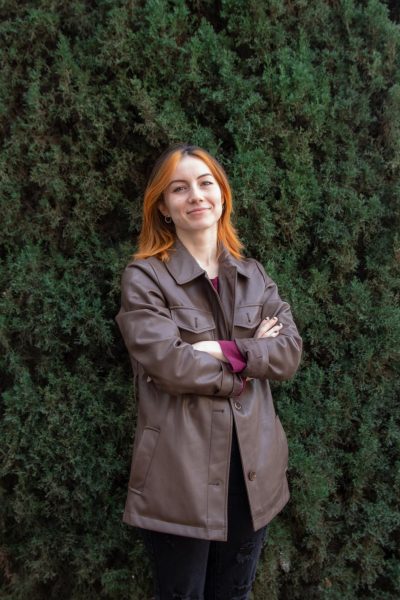
Parker • Apr 11, 2025 at 9:52 am
Turning Point USA stands against everything I strive for, I’m glad I protested. Stan State is a safe place and a place where I can be myself, Turning Point threatens that right. Me and my trans friends deserve to be treated with respect and support, not negativity for being who we are. Trans rights are human rights!!